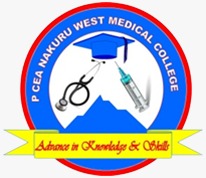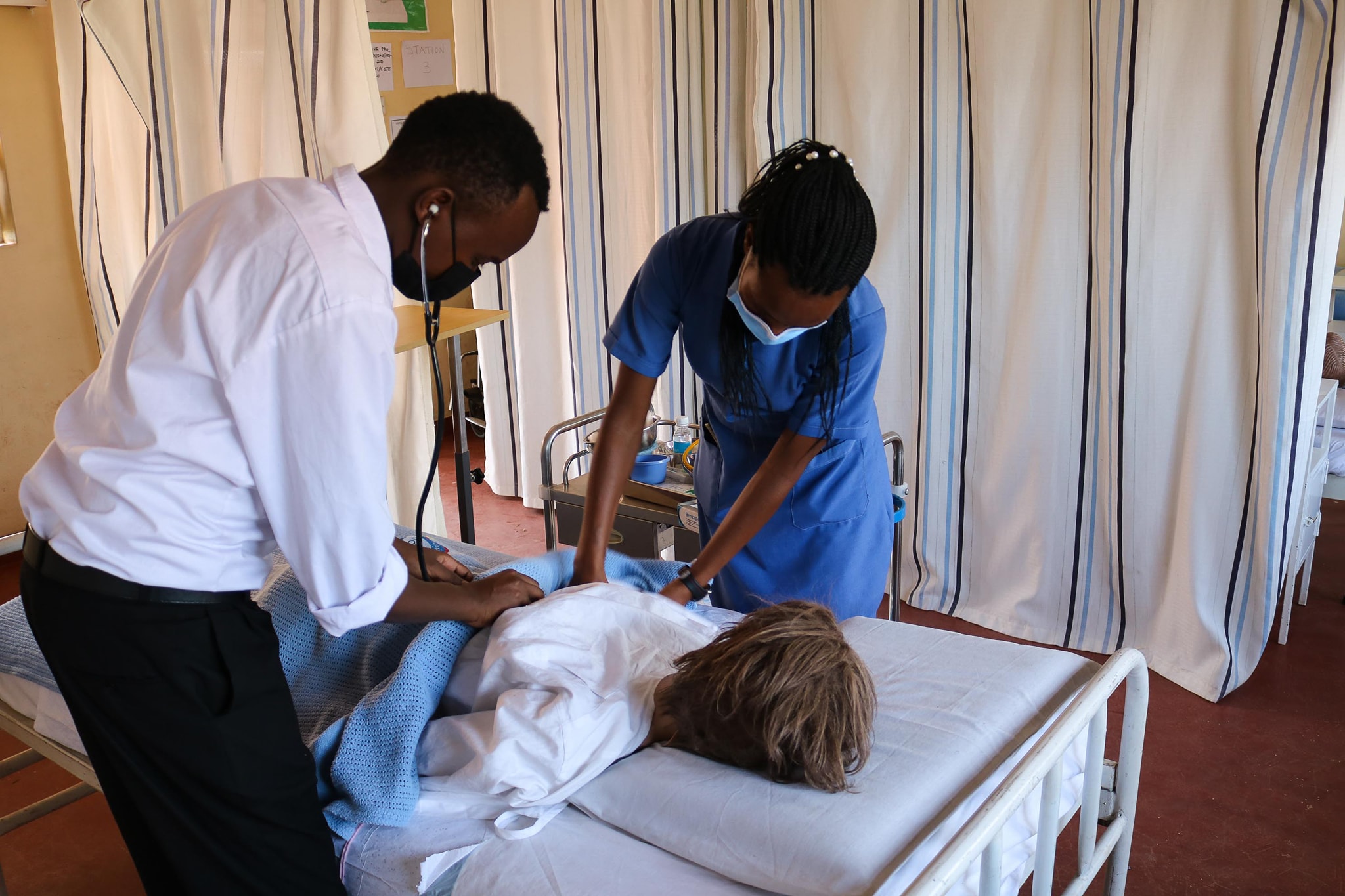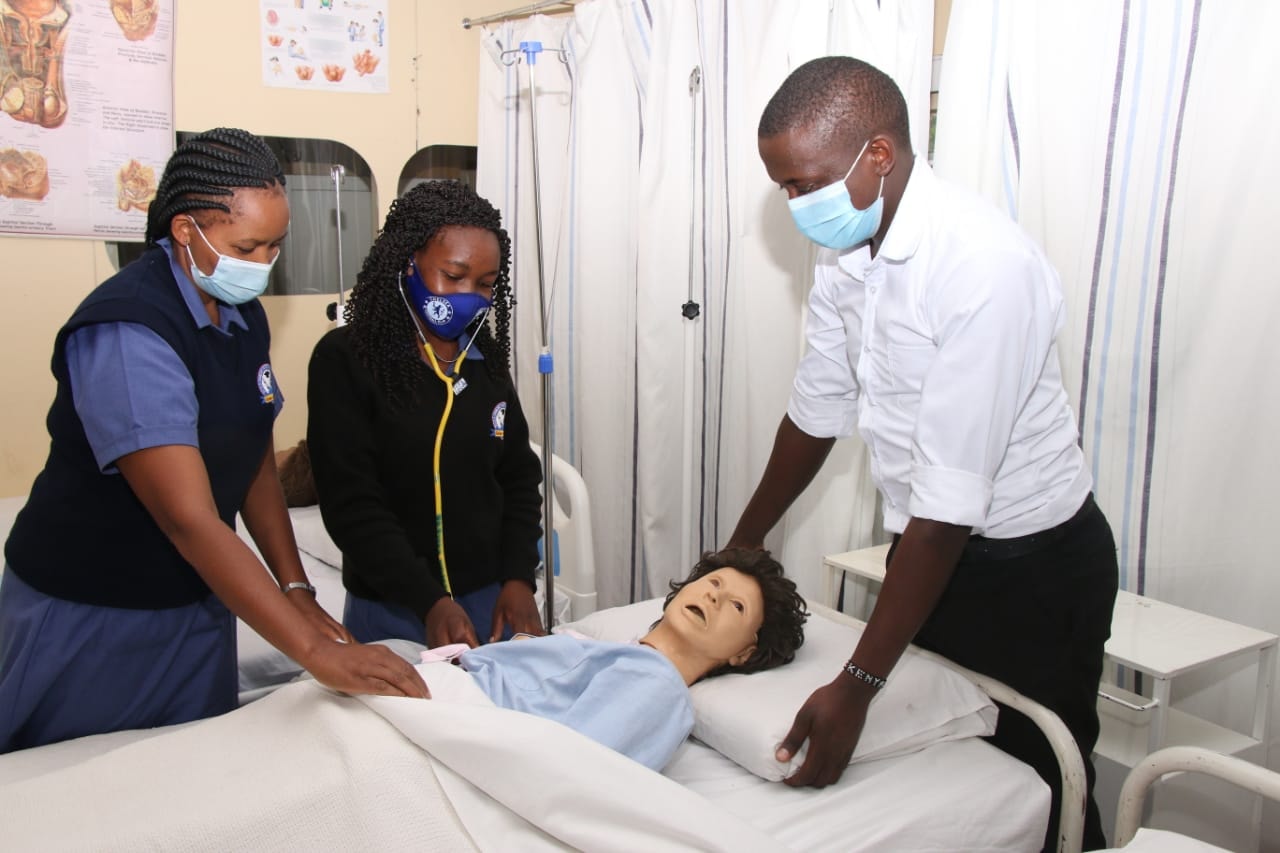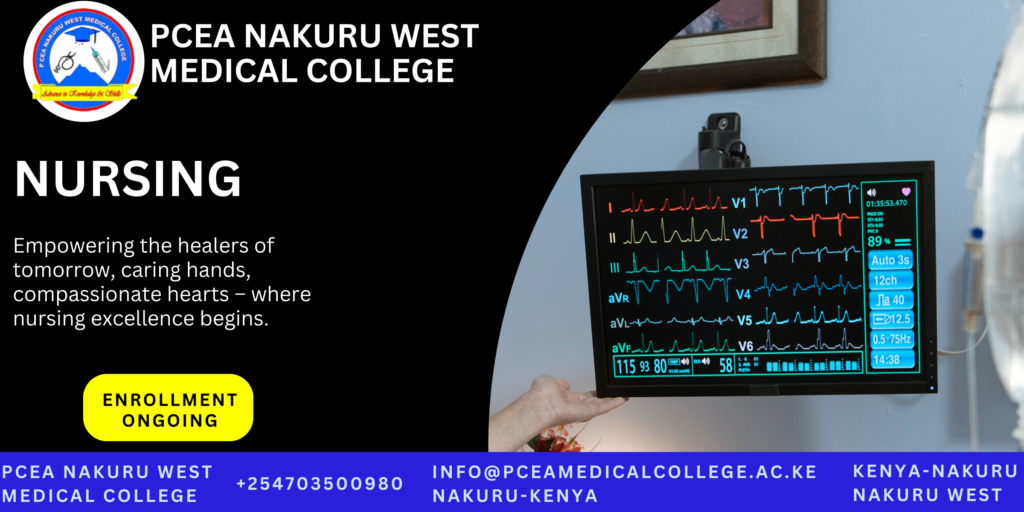Diploma in, Kenya Registered Nursing - Midwifery (KRN-M)
The Diploma in Kenya Registered Nursing–Midwifery is a nationally accredited 3-year program designed to equip students with essential clinical skills and a compassionate, faith-based approach to healthcare. Offered at PCEA Nakuru West Medical College, the course integrates core nursing and midwifery training to meet Kenya’s evolving healthcare needs.



